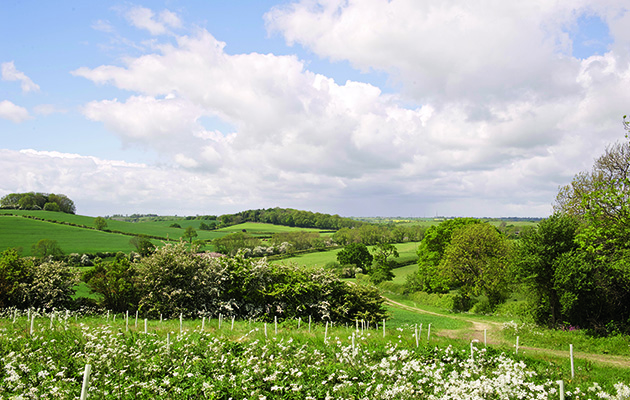Farming groups press DEFRA for clarification on post-Brexit policies
Country groups suggest that policies to secure a post-Brexit rural economy should include new regulations, continued subsidies and access to EU seasonal workers.

Rural organisations have sought answers on what the UK leaving the EU will mean for the future of British agriculture
The National Farmer’s Union (NFU) and the CLA have set out what they believe is required to secure the immediate future of the UK rural economy post-Brexit.
DEFRA secretary Elizabeth Truss has already stated that: “There will be no immediate changes — until we leave the EU current arrangements for farming and our environment remain in place.”
But the two organisations have sought further clarification, releasing separate statements in the same week, with their respective presidents raising and agreeing on many of the same points.
A new “world-leading” agricultural policy
In a letter to Ms Truss, CLA president Ross Murray suggested a four-point plan for the Government to follow going forward, which included establishing a new “world- leading” agricultural policy for the UK; ensuring that agriculture is a priority in trade negotiations; implementing regulations that “deliver outcomes not dictate process” and maintaining opportunities for overseas workers vital to the rural economy.
Seeking to reassure “thousands of concerned business owners,” he identified the Common Agricultural Policy (CAP), the EU system of agricultural subsidies, as a priority concern. He said that Ms Truss must state publicly that the Government will underwrite all CAP payments through to the end of the current period in 2020 to prevent businesses making “difficult choices”.
Farming business contribute £10 billion to the GDP
Mr Murray continued: “The support currently provided by the CAP to farm businesses underpins at least 35,000 jobs, generates £3.5 billion tax revenue and contributes an estimated £10 billion to the GDP in England and Wales alone, as well as providing significant wider environmental benefits”.
Mr Murray said that there is “no expectation” that the UK will continue to benefit from the CAP following the UK exit from the EU and called for work to commence as soon as possible to develop a UK Agriculture and Land Use Policy to replace it and noted that “during the referendum campaign all parties committed to maintaining a system of support for farmers with no less than the same budget as the current system.”
Subsidies continue at same level
In a separate message to NFU members, union president Meurig Raymond also called for reassurances that subsidies would continue at the same level as now.
“Leaving the EU gives us the opportunity to build a new British agricultural policy which is adapted to our needs, easy to understand and simple to administer. We will be looking for guarantees that the support given to our farmers is equal to that given to farmers in the EU, who will still be our principal competitors.”
Barriers to access the EU
Discussing agricultural trade, Mr Murray said: “We are very aware of the potential for barriers to access to the EU. Agricultural products in particular are often excluded, or badly served, in trade deals even when barriers to trade in other sectors are removed. If this is the case in the negotiations ahead it will have a severe detrimental impact on farmers and potentially on the cost of food for UK consumers.
It is for this reason that we seek reassurance that delivering robust trade deals which work for UK agriculture will be a clear and specific objective.”
Mr Raymond concurred: “We must get the best possible access to markets in the rest of Europe. Although we will not be a member of the EU, it will still be our major trading partner for the foreseeable future.
“Currently we benefit from more than 50 trade agreements with countries in the rest of the world. We will continue to need these kind of arrangements in future, whether this means negotiating new deals or not.”
Vital EU seasonal workers
Mr Murray and Mr Raymond also agreed on the need for a simpler approach to formulating legislation going forward and both presidents highlighted the need for “vital” EU seasonal workers and others from elsewhere in the world to continue to be allowed to come to work in the UK.
Mr Murray commented: “Workers from the EU play a vital role across our rural economy. The immediate concern is the seasonal workforce necessary to ensure crops are harvested and processed.
“As the UK exits the EU it will be important for rural businesses to maintain access to this critically important labour force. This will require the introduction of a scheme like the Seasonal Agricultural Workers Scheme that was in place until the end of 2013.”
Mr Raymond agreed: “During the referendum we have repeatedly drawn attention to our sector’s need for access to non-UK labour, both seasonal and full-time. Outside the EU we will need a student agricultural workers scheme, which is open to students from around the world.”








